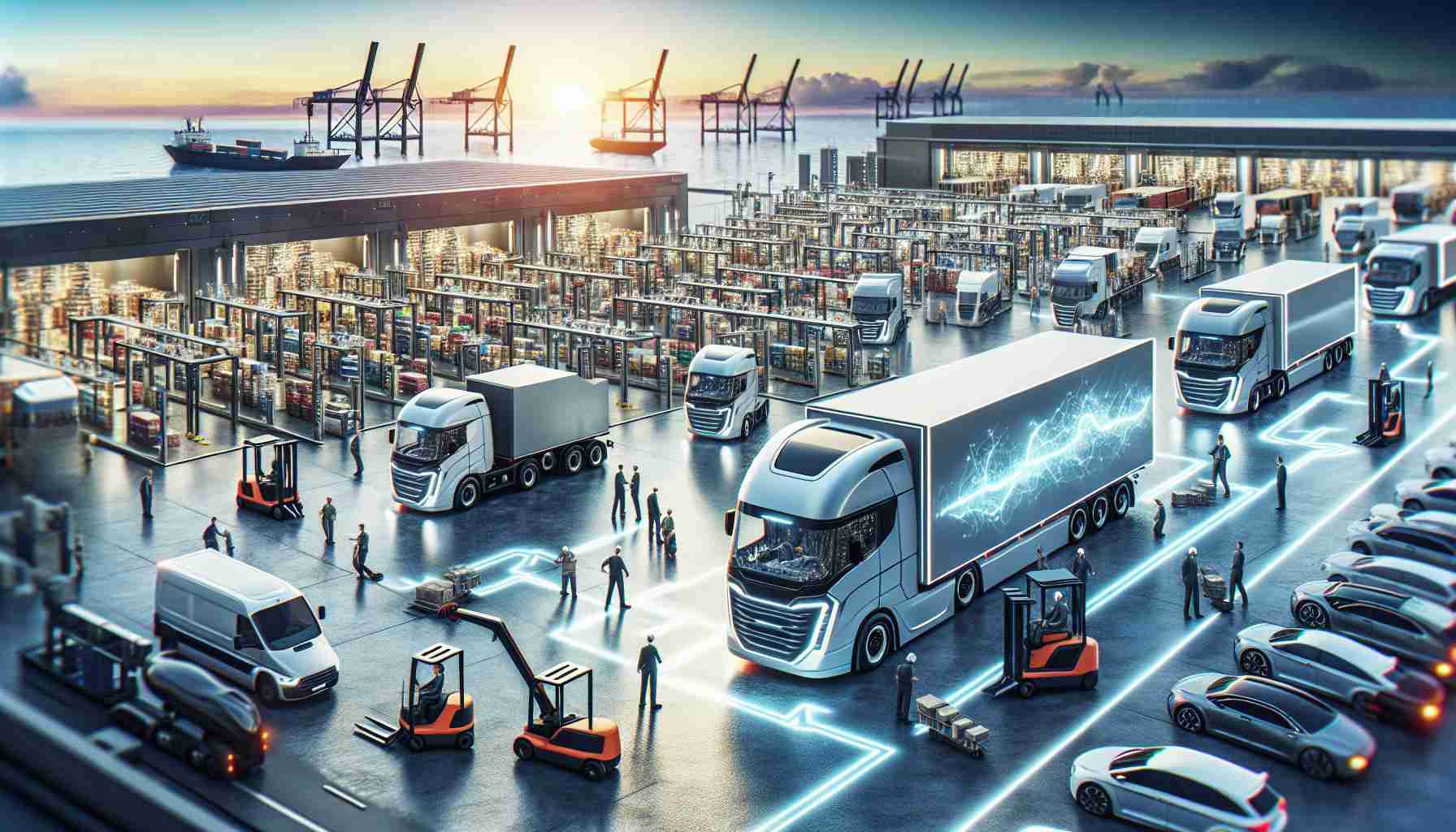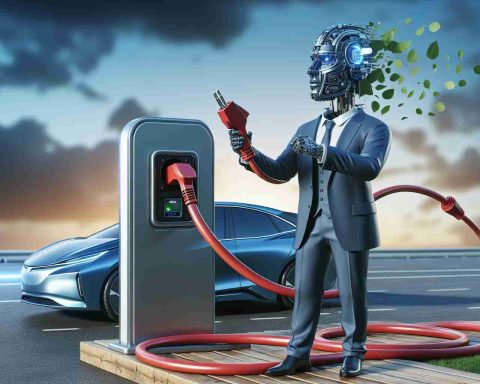- The logistics industry is shifting towards electric vehicles (EVs) as the preferred mode of transport.
- Electric trucks offer significant reductions in operating costs due to lower charging expenses and government incentives.
- Advanced safety features in EVs, such as collision warnings and lane-keeping alerts, enhance driver and public safety.
- Maintenance is simplified with automatic diagnostics in electric trucks, reducing downtime and extending vehicle lifespan.
- Adopting electric trucks contributes to cleaner air and actively combats climate change, improving urban air quality.
- The embrace of EVs in trucking represents a larger commitment to sustainability in the logistics sector.
The logistics industry is experiencing a seismic shift as electric vehicles (EVs) become the new standard for transportation. In a world still recovering from a global pandemic, stakeholders are embracing digital transformation and innovative solutions to not only enhance efficiency but also protect our planet.
Reduced Operating Costs: Electric trucks are more than just eco-friendly; they represent a savvy financial choice. With real-time diagnostics, drivers can catch mechanical issues early, saving on costly repairs. Additionally, the cost of charging an electric truck is significantly lower than refueling a diesel engine. Plus, government incentives make transitioning to an electric fleet even more appealing, ensuring truckers can maximize their profits.
Advancements in Safety: The trucking industry grapples with safety concerns, but electric vehicles come equipped with cutting-edge safety features. From collision warnings to enhanced 360-degree visibility, these trucks are designed to keep drivers and the public safe. Technologies like lane-keeping alerts significantly enhance driving confidence, reducing accidents and saving lives.
Lightening Up Maintenance Burdens: Maintenance headaches are drastically reduced with EVs. These trucks feature automatic diagnostics that alert drivers to issues before they escalate. This proactive approach not only extends the lifespan of vehicles but also boosts productivity by preventing downtime.
Boosting the Ecosystem: By ditching fossil fuels, electric trucks actively contribute to cleaner air and combat climate change. This positive environmental shift not only supports global health but also enhances air quality in urban areas.
In conclusion, the rise of electric trucks is not just a trend—it’s a transformative movement that promises to reshape the logistics landscape. With lower operational costs, advanced safety features, and a commitment to sustainability, the future of trucking is brighter than ever!
Revolutionizing Logistics: The Electric Truck Transition
The logistics industry is undergoing a profound transformation with the rise of electric vehicles (EVs) becoming the standard for transportation. This change is not just about embracing new technology, but also about redefining operational efficiency, enhancing safety, and reducing environmental impact. Below are several key aspects regarding electric trucks that highlight their significance in the logistics sector.
Market Forecasts: The electric truck market is projected to grow significantly, driven by advancements in battery technology and increased governmental support. Market analysts predict that by 2030, electric trucks will account for a substantial portion of the commercial vehicle market, potentially reaching a market value of over $100 billion.
Features and Innovations: Electric trucks come equipped with features such as regenerative braking, advanced telematics, and AI-driven route optimization. These innovations not only improve fuel efficiency but also help in real-time decision making, enhancing overall logistics efficiency. Furthermore, many electric trucks have lower noise levels, making them suitable for urban deliveries during off-peak hours.
Limitations: Despite their advantages, electric trucks face certain limitations. The range of electric trucks remains a concern, especially for long haul routes. Charging infrastructure is also not yet as widespread as traditional refueling stations, which can complicate logistics planning. Additionally, the upfront cost of acquiring electric trucks can be higher, even though the long-term savings are significant.
Sustainability Insights: The shift to electric trucks represents a crucial step in reducing the carbon footprint of logistics operations. Studies suggest that if the logistics industry fully transitioned to electric trucks, it could cut greenhouse gas emissions by up to 50% by 2030. Furthermore, using renewable energy sources for charging can make electric trucking even more sustainable.
Predictions: Experts predict that as battery technology improves and the costs decline, matching or surpassing the efficiency of diesel engines will become more commonplace. This could lead to more logistics companies adopting electric fleets, thereby accelerating the transition toward sustainable transportation.
Use Cases: Many logistics companies are already implementing electric trucks into their fleets for urban deliveries, where the lower operating costs and environmental benefits can be fully leveraged. Companies like Amazon and UPS are leading the charge, incorporating electric delivery vans and trucks into their operations.
Market Analysis: The competition among manufacturers is intensifying, with traditional automotive companies and new entrants alike investing heavily in electric truck technology. Companies such as Tesla with their all-electric Semi and Rivian’s delivery vans are setting new benchmarks in this sector.
Frequently Asked Questions
1. What are the main advantages of electric trucks over traditional diesel trucks?
Electric trucks offer lower operating costs, advanced safety features, reduced maintenance needs, and a significantly lowered carbon footprint. They can also benefit from government incentives, making them financially advantageous.
2. What challenges do electric trucks face in the logistics industry?
The primary challenges include limited range compared to diesel engines, the need for more widespread charging infrastructure, higher initial purchase costs, and varying performance based on load and terrain.
3. How is the electric truck market expected to evolve in the coming years?
The market for electric trucks is projected to experience substantial growth due to technological advancements, expanding charging networks, and increasing regulatory support for sustainable practices. By 2030, electric trucks are likely to represent a significant segment of the commercial vehicle market.
For more information on the logistics industry’s transition to electric vehicles, visit Logistics Management.














